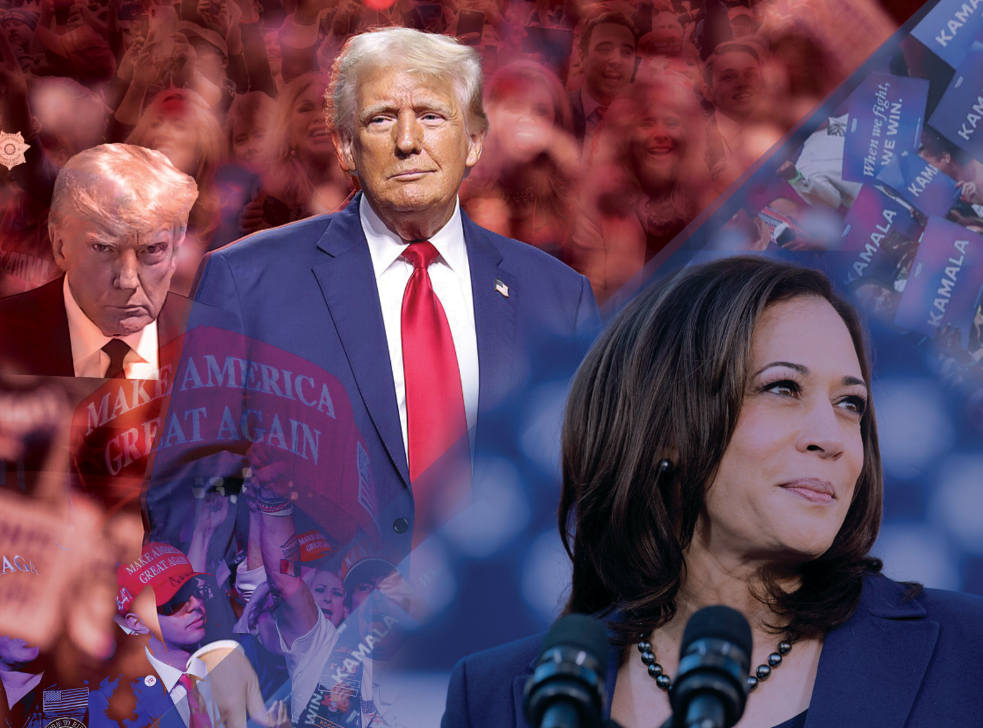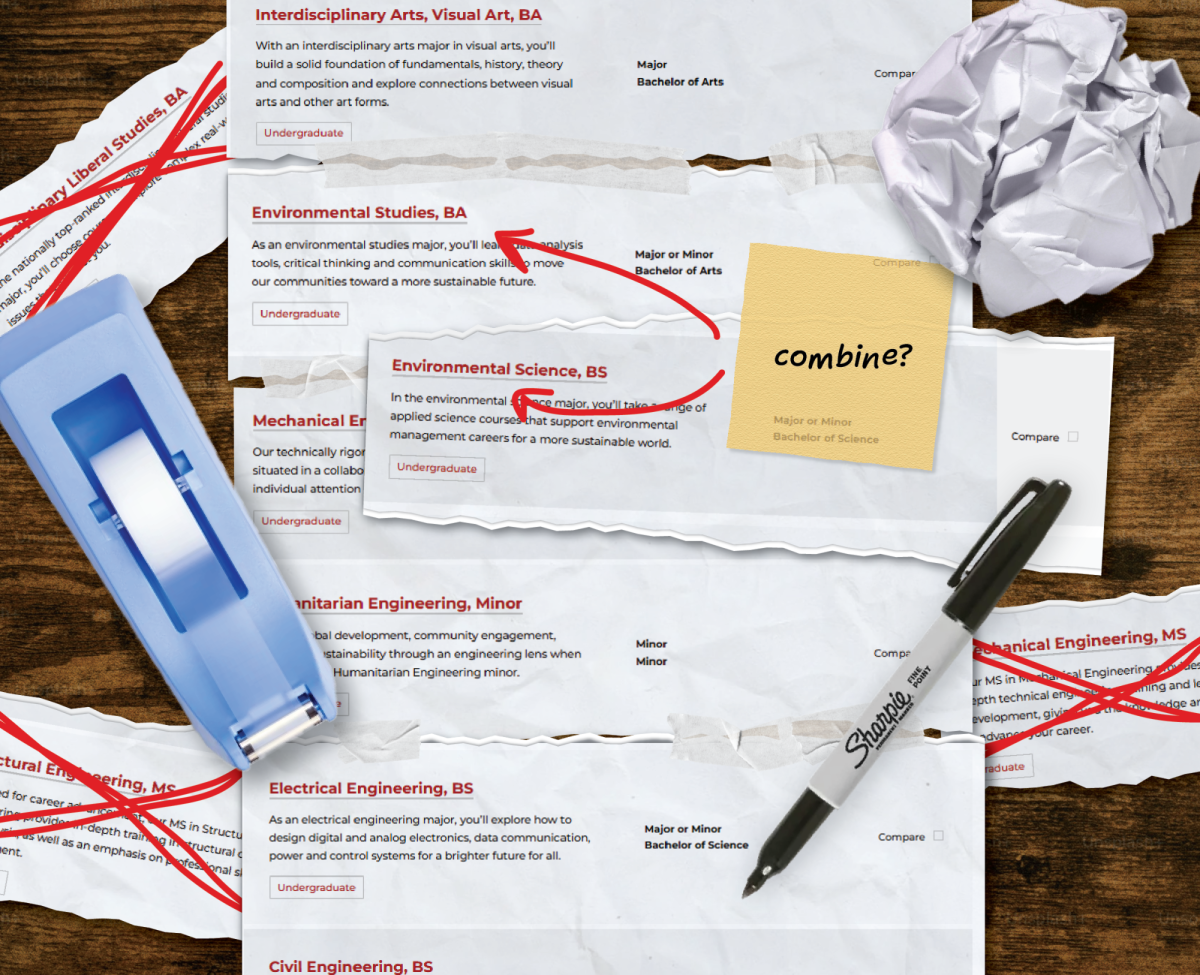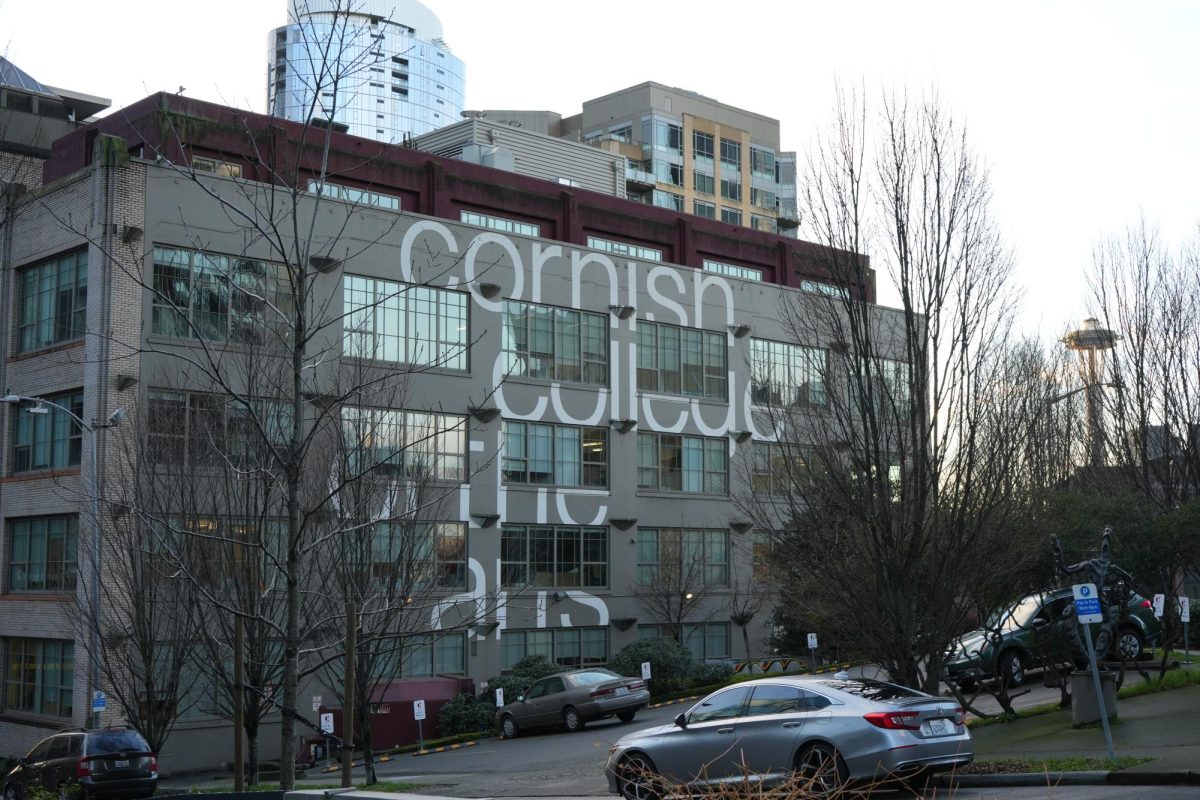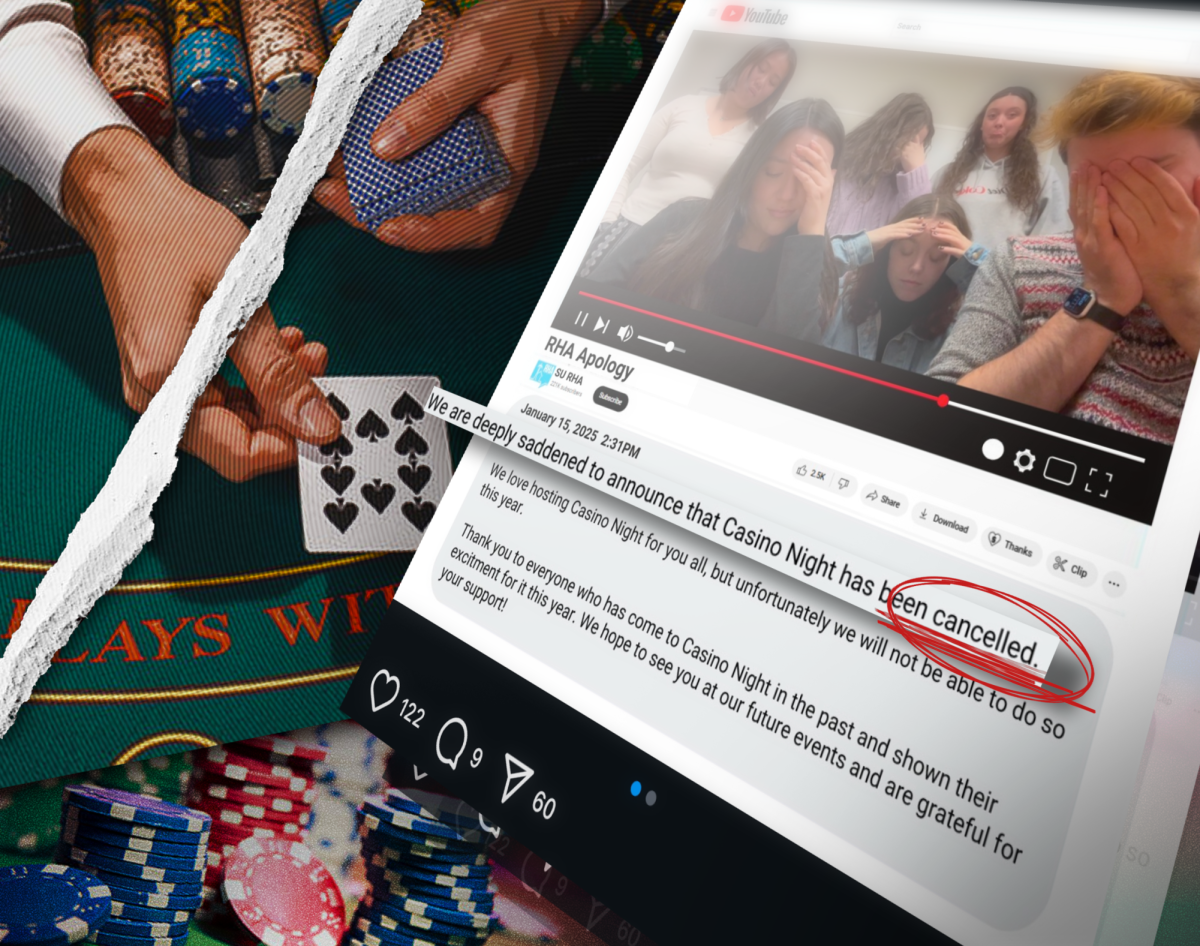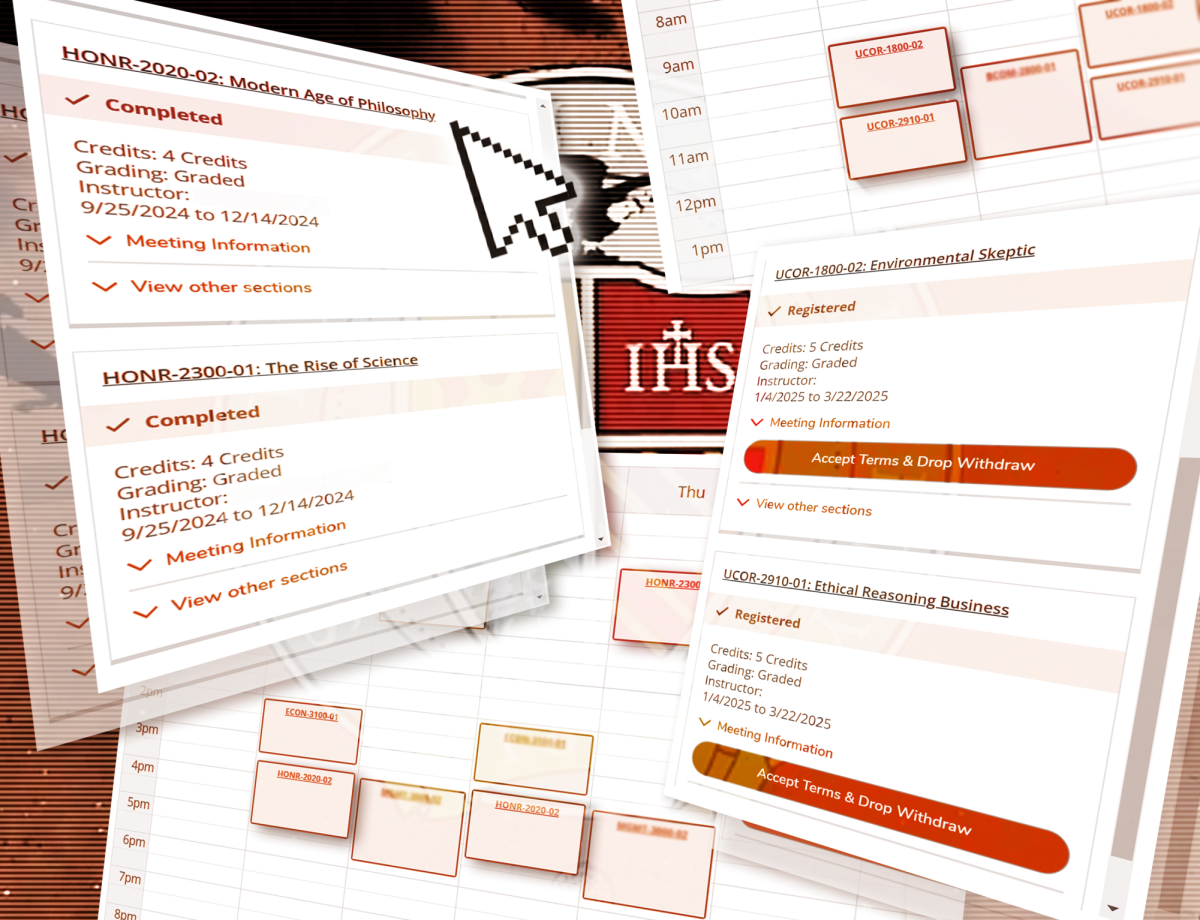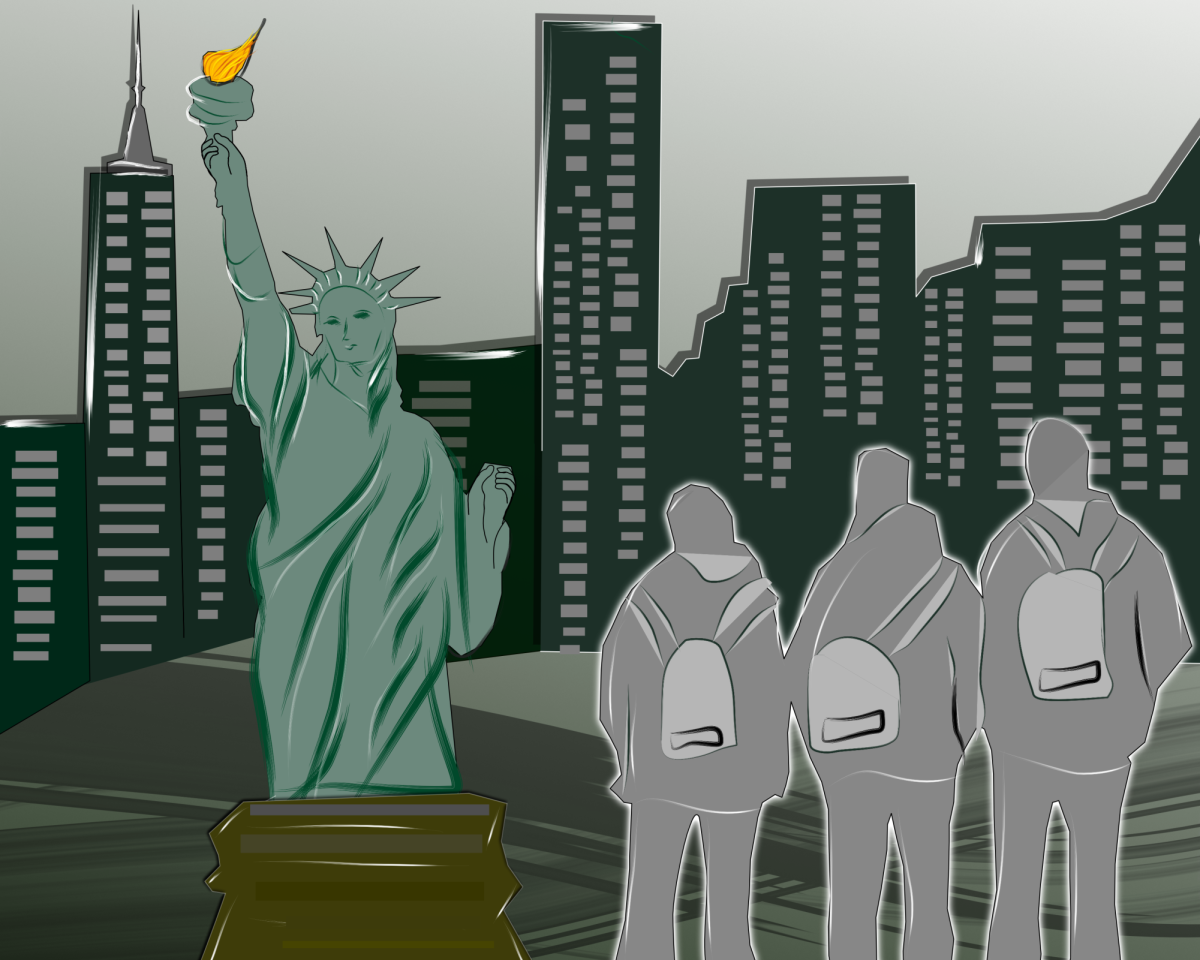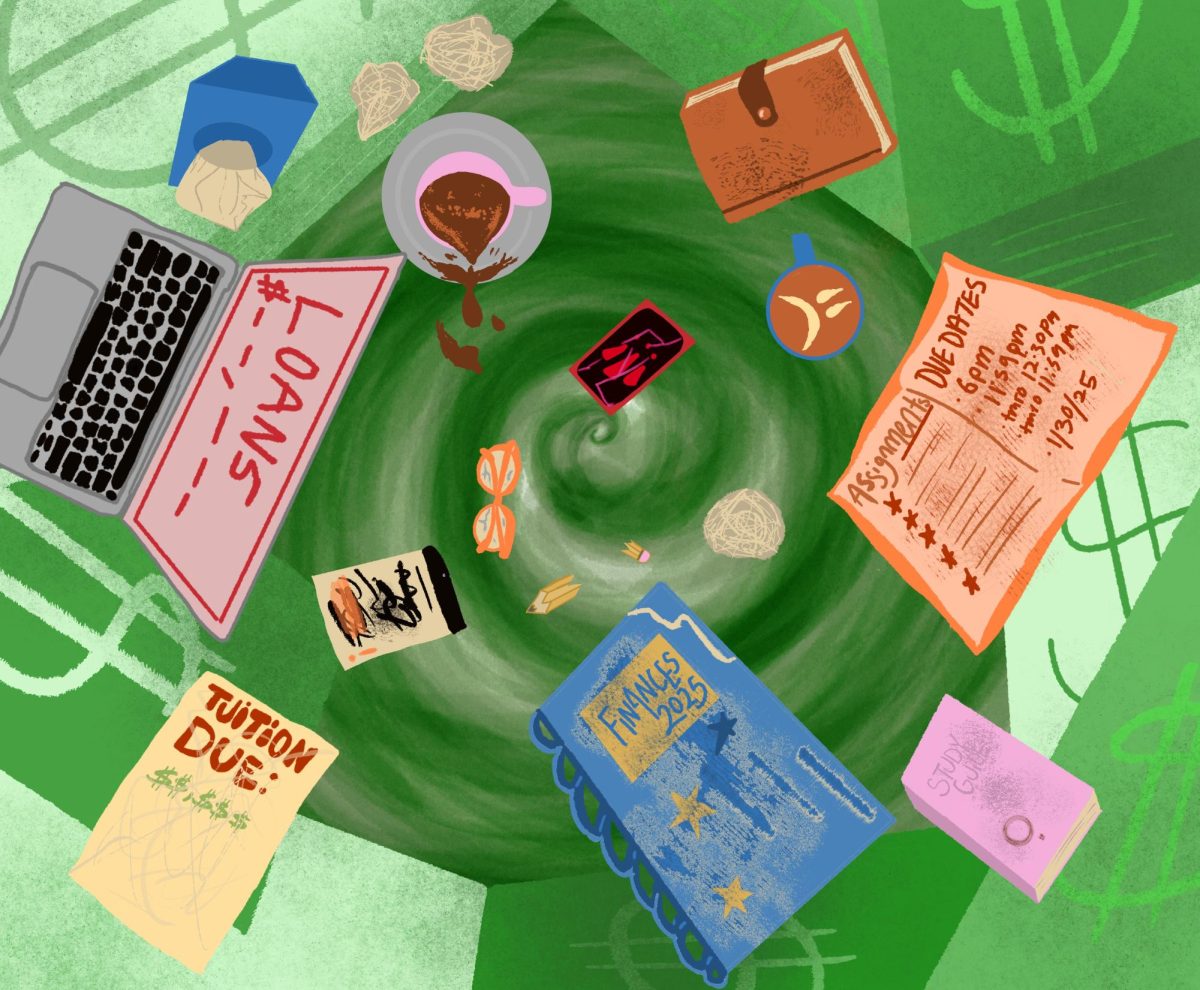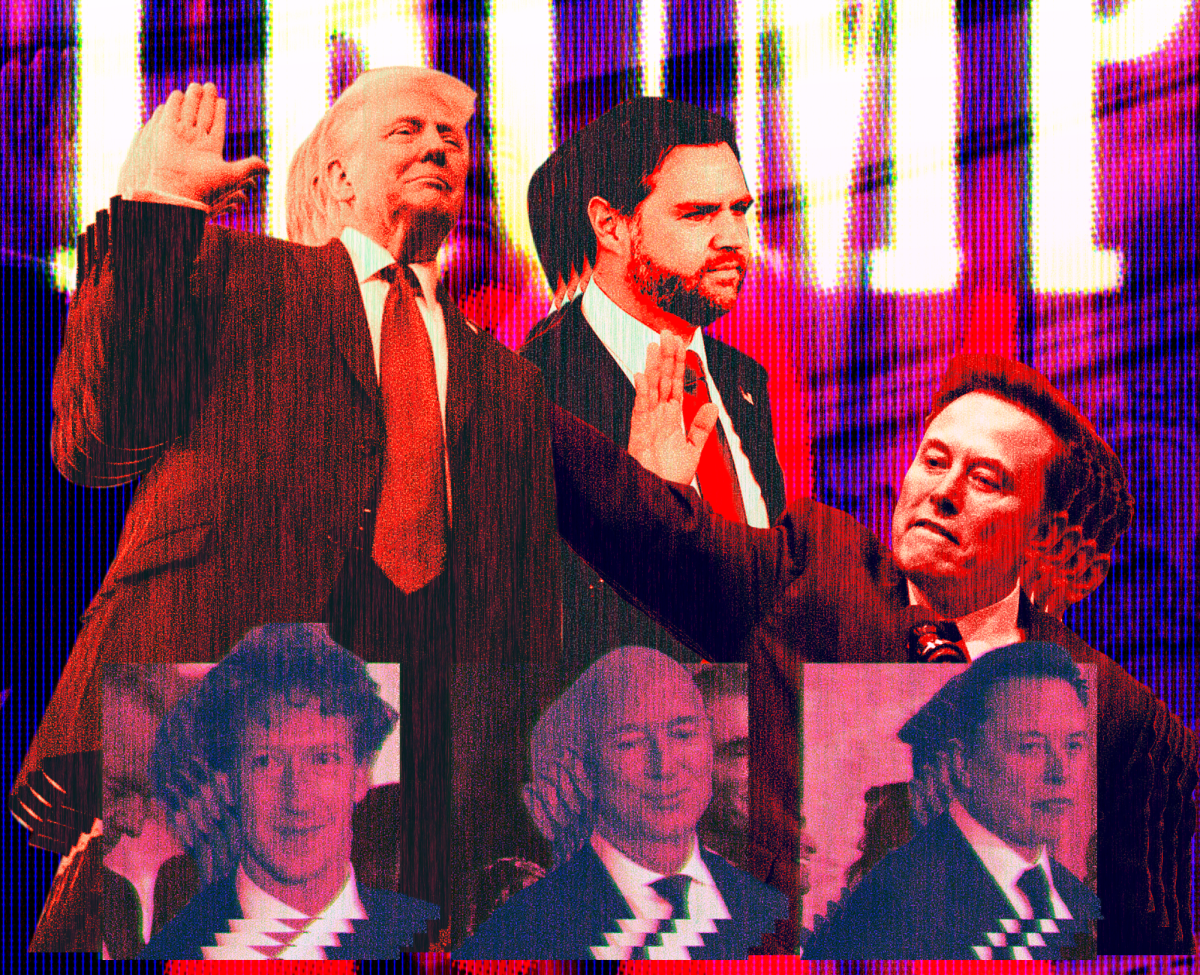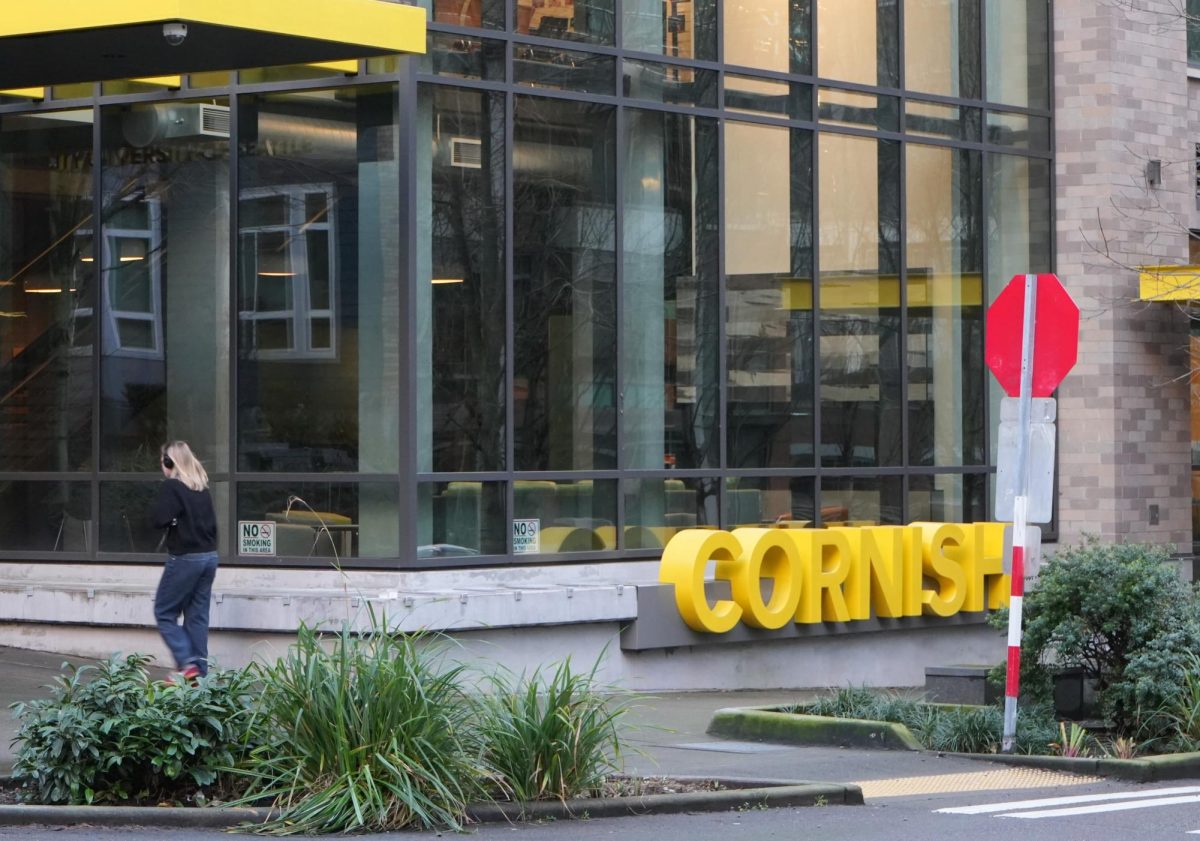The period leading up to the election was undoubtedly a time of great social unrest and political uncertainty. Now just two days removed from Nov. 5, the country knows that Donald Trump will be the 47th president of the United States.
While many Americans cast their ballots with similar issues in mind this year, each voter is a unique and independent thinker. The Spectator spoke with several student voters, as well as Harris campaign volunteers in Nevada, to discuss their perspectives on the challenges this election presents to the American people and beyond.
Maya Tukes, fourth-year
Hometown: Seattle, Wash.
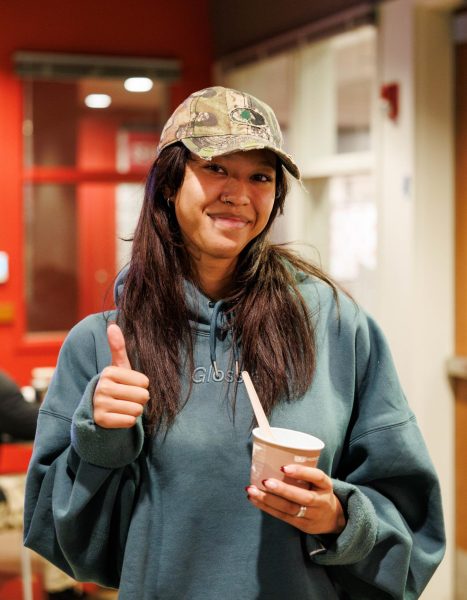
Fourth-year Communication and Media Major Maya Tukes was excited to vote at the federal level for the first time. Tukes wasted no time casting her ballot this year, filling it out immediately after receiving it in the mail. As someone “voting with her own ideas,” Tukes said she doesn’t agree with some current Seattle policies, but was hoping to make a positive impact on her hometown by voting.
While unplanned, Tukes’ entire friend group ended up voting with each other.
“For most of us, we could vote for the first time, and we wanted to make sure that we all supported each other in feeling like our political views and voices are being heard,” Tukes said.
Women’s rights, immigration and education are just a few issues that motivated Tukes to vote this year. She also cited squatter’s rights, global conflict and taxes as reasons to take to the polls.
To Tukes, this year’s election means two simple words.
“My future.”
August Buffaloe, second-year
Hometown: Simi Valley, Calif.
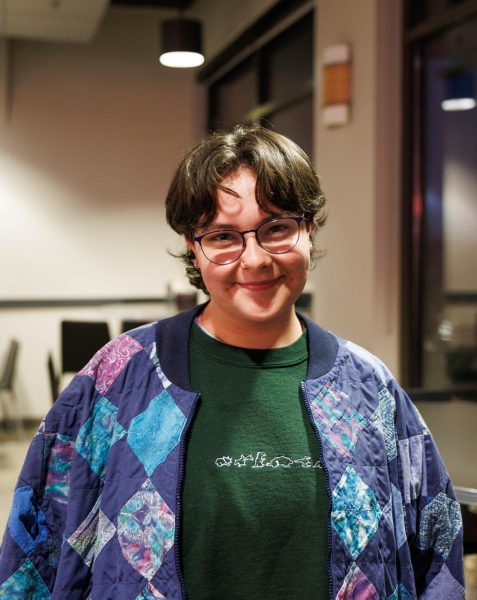
August Buffaloe is a second-year environmental studies major and first-time voter. Buffaloe voted in California this year and was eager to cast his ballot.
Buffaloe hails from Simi Valley, a town he described as relatively conservative. While he said many residents support Trump and planned to vote based on his economic plans, Buffaloe had other views. Buffaloe’s politics are more aligned with Los Angeles, about a 40-minute drive away from his hometown.
“In LA it’s a little more liberal, so [over] there is more aligned with my values,” Buffaloe said.
As for the issues most important to him this election, Buffaloe cited reproductive rights, the genocide in Gaza and climate change.
Buffaloe believes this election had more at stake than just a new president.
“In this election, democracy is in the balance, and if Trump wins, that is a serious threat to democracy and America.”
Sami Han, second-year
Hometown: Louisville, Ky.
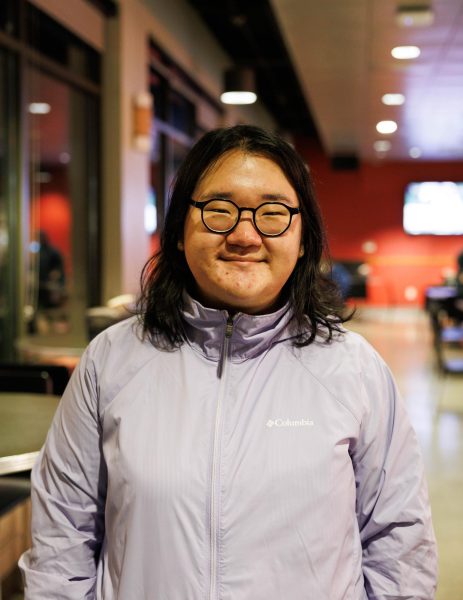
Sami Han is a second-year communication and media major from Louisville, Ky. Voting for the first time, Han cast her ballot in Washington state. Although she wasn’t initially familiar with everything on the ballot, after researching, Han was excited to cast her vote as an informed citizen.
This election, Han’s top voting topics were inspired by her parents.
“Coming from my parents being from another country, I feel like I really emphasize immigration rights and caring for people who are marginalized in society,” Han said.
While she voted in Washington this year, Han’s roots are in Kentucky. She says that contrary to what many Seattleites might think, not all of Kentucky is deep red. She believes that cities like Louisville lean Democratic and have politics similar to cities like Seattle.
While Kentucky leans red, the state’s population holds a diverse range of political viewpoints. Both of the state’s senators and most of its house representatives are Republicans, but Gov. Andy Basheer represents the Democratic party.
Like many of her peers, Han believes that this election is pivotal.
“I feel like based on the results of the election, we will be able to decide if America is set or not,” Han said.
Joshua William-Ajaero, first-year
Hometown: Auburn, Wash.
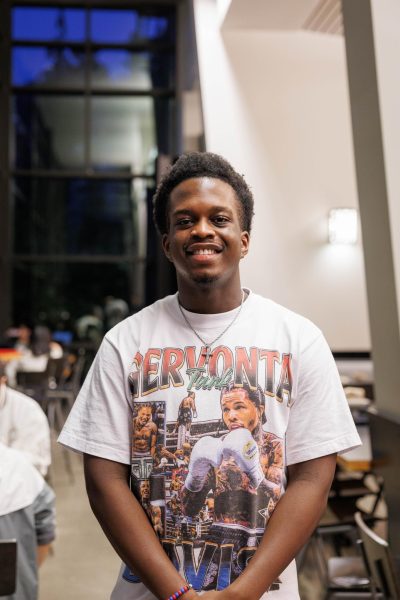
Computer Engineering Major Joshua William-Ajaero is a first-year student who voted for the first time. While William-Ajaero cited policies from both candidates that he agrees and disagrees with, his vote this election came down to character.
“At the end of the day, I don’t really agree with both [candidates]. So now I’m looking at character, what is the character of the person I want representing me as a U.S. citizen?” William-Ajaero said. “I just don’t want a man that has felony charges in office.”
William-Ajaero was primarily concerned with public safety, the economy and foreign policy this election. He believes that the U.S. needs to improve its relations with other countries, something he says previous administrations have not done a good enough job of. William-Ajaero believes that the president should accurately represent their citizens to the rest of the world.
While William-Ajaero is confident with his decision this year, he believes that he and the rest of the student body still have time for their political perspectives to evolve.
“I’m a freshman, I’m coming from high school. People are still developing their own ideas,” William-Ajaero said. “As far as the politics scene, people don’t know what they want yet. We’re still growing, still learning, we’re still figuring out how politics affect us as human beings.”
David Laquies, first-year
Hometown: Auburn, Wash.
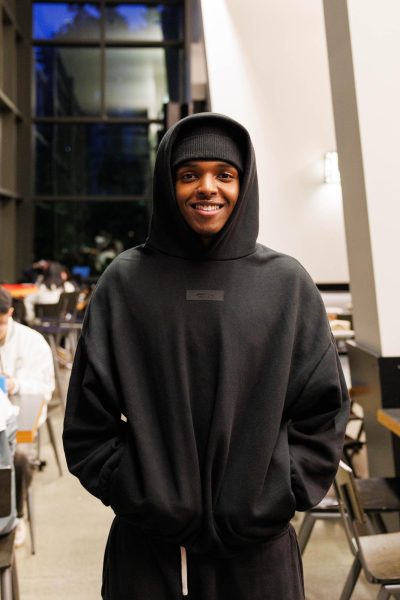
David Laquies is a first-year nursing major who was both nervous and excited about this election. Laquies cast his ballot in Auburn, Wash. this year, and he voted on issues such as public safety, the economy and insurance.
A self-described conservative, Laquies believes that the country needed a Republican president following Joe Biden’s tenure in office. He believes that Biden left the country worse than it was before, citing inflation and foreign policy actions. He was specifically disappointed in the Biden administration bombing Syria a month into his presidency.
Laquies believes Harris isn’t enough of an established politician to make a good president.
“If I [talk to] any Kamala Harris voter, my number one question to them is ‘Name three accomplishments of Kamala Harris?’” he said. “She came out of nowhere.”
Laquies said he has always leaned red, despite some criticism from his peers.
“Since high school, I’ve always [leaned towards] the Republican party. A lot of people have disagreed with me, [but] I didn’t pay too much mind to it,” Laquies said.
As someone who thinks the country was a better place when Trump was president, Laquies was excited to vote this year.
“Trump 2024,” he said. “If Kamala Harris becomes president, it’s over for this country.”
Owen Hansen, third-year
Hometown: Novato, Calif.
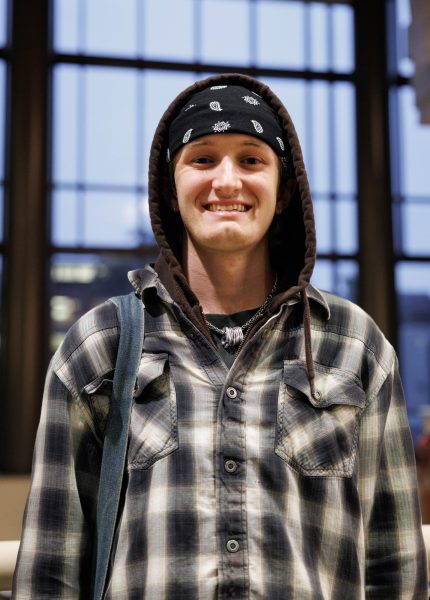
A third-year marketing major, Owen Hansen was excited to vote for someone who he believes would have brought competency back to the White House. As a registered voter in California, Hansen sent in his ballot by mail more than a week before Election Day.
Hansen described his political beliefs as progressive, and voted on issues such as abortion rights, taxes and foreign policy this year. While he was disappointed in the foreign policy decisions from some of the Democratic candidates this year, he was confident in his vote.
Originally from Novato, Calif., Hansen identifies more with the nearby Bay Area’s politics than his hometown’s.
“The high school I went to is pretty conservative… a lot of people in my hometown are conservative,” Hansen said. “I’d say I differ from the majority in my specific area, but the Bay Area as a whole is more progressive.”
This election had Hansen feeling anxious about who might win, and he was quick to share what this election means to him.
“A lot,” he said. “I don’t know if I can put it in more succinct terms than that.”
Gary Peck, Nevada volunteer for the Harris campaign
Hometown: Takoma Park, Maryland
Gary Peck knows a thing or two about organizing people around a common cause. As former executive director of the ACLU in Nevada, Peck worked to protect the civil liberties of many different groups in Nevada. On the last weekend before the election, he was on campus at the University of Nevada Las Vegas (UNLV) working to get people to polling places to vote for Kamala Harris and down-ballot Democrats.
Peck viewed Trump as an untenable alternative to Harris, although he had a list of policies he would like to see that were not on Harris’ current platform.
“I could go on with a rather lengthy list of the kinds of things I would like to advocate for,” Peck said. “But I’m with Alexandria Ocasio-Cortez. Policies are a shovel… I consider voting for Kamala putting a shovel in and working hard to dig down to the place we want to end up.”
Peck dug deep at UNLV. He viewed Trump as one of the most significant threats to American democracy he has seen in his 74 years of life, motivating him to volunteer with the Nevada State Democratic Party.
“People say at every election cycle, ‘this is the most important election ever,’” Peck said. “But you know what? This moment in history, that matters. That is real.”
Renee Garvey Halm, Nevada volunteer for the Harris campaign
Hometown: Las Vegas, Nev.
Renee Garvey Halm dressed to impress at the UNLV campus. Under the hot Vegas sun, she encouraged students to vote early Nov. 1, the last day to do so in the state of Nevada. She wore a colorful sun hat and a blue shirt that instructed people to, “Dance the Harris Walz: two steps forward, no steps back.”
The UNLV campus was chosen by the Nevada State Dems as a spot to organize for its proximity to young voters. Halm wanted to get the word out to students who may be able to vote for the first time in 2024.
“This is their future going forward. They need to decide what kind of world they want to live in,” Halm said. “This election very much echoes the values of many young people, now my kids and nieces and nephews.”
The 2024 Harris-Walz campaign was the most involved Halm has been with a political campaign. To her, this one is special.
“I’ll do anything, anything to help Kamala win,” Halm said. “Democracy is on the line.”


